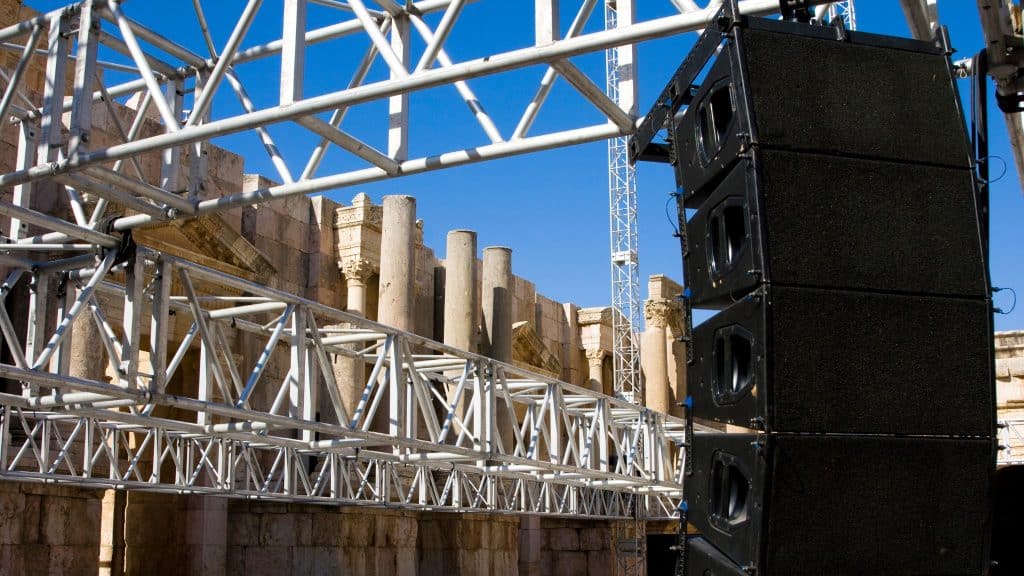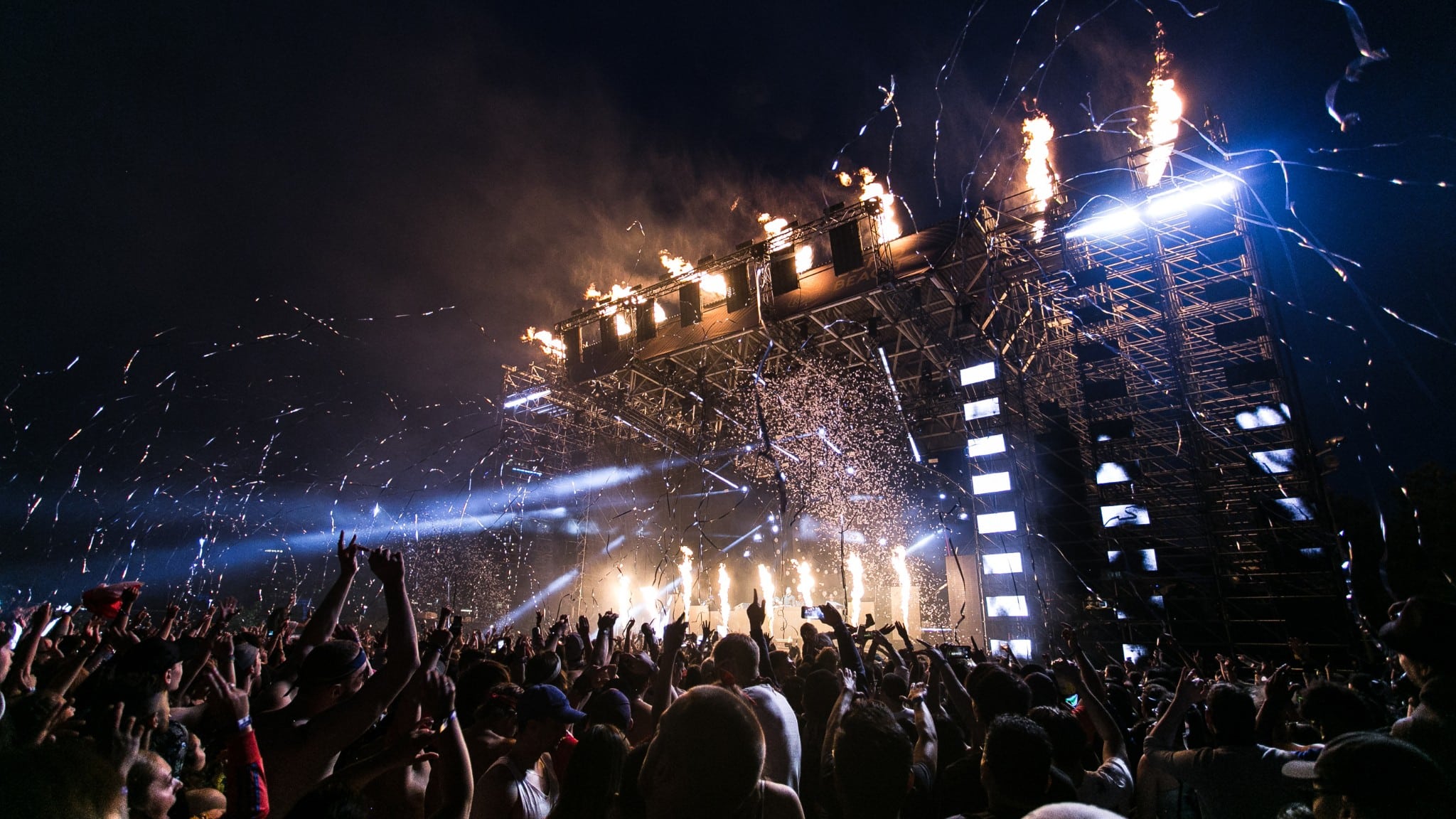Master the art of music event planning with our comprehensive guide, covering everything from the initial concept to its final execution. Make your next live music event a resounding success.
Key Takeaways
#1: Defining Your Live Event Details and Your Vision and Goals.
#2: Venue Selection and Securing the Perfect Venue.
#3: Booking Talented Performers.
#4: Promoting Your Concert/Event Effectively.
#5: Handling Logistics Down to the Last Detail.
The excitement for live music events and festivals is back on after years of precautions due to the COVID-19 pandemic. People are once again looking for entertainment in the form of unique and immersive experiences, and it’s up to concert promoters and music event organizers to deliver.
For event organizers and promoters, it is essential to understand the steps involved in planning a successful music event or festival from scratch.
This includes everything from establishing a production budget, management of vendors, talent, and event staff, and engaging with the local community along with potential concert attendees to keep your ticket sales going up.
Also Read: Creating And Optimizing The Production Budget For Your Music Event
Music events such as concerts and festivals are live performances featuring artists, bands, or DJs that can range in size, from small one-night performances by local bands with limited guests, to large-scale events with multiple stages and thousands of guests across several days.
These highly immersive live events provide an opportunity for performers to reach new audiences, for promoters to attract attendees and sponsors, and for organizers to create a memorable experience.
Concert planning and organizing a music event or festival requires careful management and attention to detail. It requires an present and updated understanding of the various components involved in event production and concert promotion, such as securing the venue, booking talent, setting up technical equipment such as a high quality sound system, and other services such as restroom facilities. Finally, there is also marketing the event to potential ticket buyers.
In this article, we will provide an overview of the steps required to plan a music event or festival from scratch. We’ll do this by dividing what you need to do into five key sections that make event planning more approachable and manageable:
- Pre-launch planning: Establish goals and get started with the early stages of planning your music event
- Pre-production: Organize your event venue, understand your schedule and how to handle logistics both on and off-site
- Programming: Book talent, vendors, additional entertainment, stage set-ups and ticket prices
- Promoting the event: Plan and prepare promotional content, manage collaborations and start selling tickets
- Post Event: Keep your event’s details and media circulating online to keep potential buyers in the loop for future music events
Pre-launch planning: Establish goals and get started with the early stages of planning your music event

As an event planner, when it comes to the pre-launch planning of your event, you want to consider your event staff, the money you have to work with (i.e. your budget), and the event venue or venues.
It’s extremely important to concentrate on these three aspects as you approach the first few steps of your concert event planning. It helps you spread your team across multiple tasks, which gets things done more efficiently and sets the parameters around what is fiscally possible leading to the date of your event.
Organizing your teams and their roles:
The first step in planning a music event or festival is to organize a team and assign roles. This team should include members with expertise in areas such as finance, legal, operations, marketing, and production. Each team member present should have clearly defined responsibilities and be held accountable for their tasks.
Budgeting:
Next, it is important to set up a budget for the event. This budget should include sources of income such as ticket sales and sponsorships, as well as expenses such as venue rental fees and artist fees. It is also important to consider potential unexpected costs that could arise during the event.
Deciding on the venue for your event:
The third step is to determine the event location and venue. When selecting a venue, there are several factors to consider such as accessibility, capacity, and acoustics. The venue should be large enough to accommodate the expected audience size, but not so large that it feels empty or overwhelming. It is also important to ensure that the venue meets local health, safety, and noise regulations.
It is also important to decide between an indoor venue or an outdoor venue for your concert event. Awareness of your event’s location and any inclement weather forecasts will help you decide this, as well as the available stage and sound set-up you will have to work with.
It is important to consider the technology used for your event venue space. For instance, many event organizers have some sort of streaming service implemented in the venue space for hybrid events that function similarly to virtual meetings. You also want to consider if you want your event to cater to the hybrid experience.
If you need help figuring out if your event fits the bill for a hybrid event, take a look at our article to help you decide: The Definitive Checklist To Setting Up And Streaming An Online Event
Set up your event ticketing page:
An online concert event page is extremely important for an event to be a success. As soon as you’re getting ready to announce and promote your event, you need to have a platform to send your audience to, so they can purchase tickets and fill up the event venue, leading to a good show.
With a platform like Ticket Fairy, event promoters have access to detailed audience demographics, an in-built email messaging system, pre-registration, waitlists, and so much more.
Ticket buyers are also enticed by the platform’s referral program, which allows them to get refunds on their ticket price, and in turn helps promoters sell 20% more tickets than normal.
Pre-production: Organize your event venue, understand your production schedule and how to handle logistics both on and off-site

Once the venue has been secured, it is time to build the infrastructure required for the event. This includes installing stages, lights, technical equipment, and other necessary items such as crowd control barriers and emergency exits. It is also important to hire staff and vendors such as sound engineers, lighting designers, security personnel, and cleanup crew to name just a few.
Hospitality management and attention to food and beverage vendors is also an important part of building an event. This includes researching catering options and setting up concession stands to ensure that attendees have access to food and drink throughout the event. This is especially true if your music event or festival spans days or weekends.
Additionally, safety and security measures should be implemented to protect attendees from potential hazards or risks associated with large gatherings of people. Having medical aid alongside security and access to local authorities helps your event space prepare for any emergencies proactively and efficiently.
Programming: Book talent and additional entertainment

The next step in your concert planning is programming the concert, by booking talent and selecting music. When booking performers, it is important to research potential acts and negotiate contracts that are mutually beneficial for both parties. When selecting music for the event, it is important to consider genre diversity, audience appeal, and cultural relevance.
Most importantly, consider your event theme or brand identity. You want the artist and music to represent the atmosphere and theme of your event. Some things to consider before booking your performers and music are:
- The theme and atmosphere you want your event to emulate
- How do the performers match those expectations and values
- What your target audience expects from the performing artists (things such as genre, brand identity, and history)
Scheduling performances is also an essential part of programming an event. This involves accounting for sound check times, artist breaks, and audience flow so that each performance runs smoothly without any hiccups or delays.
Scheduling is especially important if you have multiple artists performing. Draw out a meticulous concert schedule or itinerary that specifies the allotted times for performances and breaks to avoid any mishaps.
Promoting the event: Plan and prepare promotional content, manage collaborations and start selling tickets

Once the concert event has been programmed it is time to start marketing and promoting it. This includes creating a website and social media accounts to build a community of loyal fans who will attend and promote your future events.
Additionally, it is important to develop a comprehensive marketing plan that includes strategies such as social media campaigns, outdoor marketing (billboards, posters, etc.), paid advertising, influencer partnerships, and exclusive offers.
Reaching out to media outlets can also be beneficial in securing coverage of the event from local newspapers or online publications.
Each aspect of promoting has a set of best practices and many years of proven approaches, read some of our articles about it here:
How Outdoor Marketing Can Effectively Capture And Keep Your Audience’s Attention
Take Your Event Promotion To The Next Level With A Multi-Format Instagram Strategy
How Audience Demographics Help Event Promoters Create Effective Campaigns
5 Things Every Promoter Should Do As Part Of Their Organic Social Media Campaign
How Planning A Multifaceted Digital Strategy Enhances The Marketing Of Your Music Event
Post Event: Keep your event’s details and media circulating online to keep potential buyers in the loop for future live music events

After the event has concluded it is important to collect feedback from attendees in order to improve future events. It’s important to evaluate its success and identify areas for improvement for future events. This can be done through surveys or interviews with attendees about their experience at the event.
Additionally, it is important to update the budget to account for any unexpected expenses or changes in income.
It is important to acknowledge sponsors by providing visibility at the event as well as through post-event materials such as press releases or thank-you notes. It is also beneficial to plan for future events by assessing successes and failures from previous events in order to improve upon them in the future.
Lastly, it’s very important to acknowledge the attendees. Content from the event, like videos, pictures, and interviews with artists will help the audience relive the event and be excited for your next one. If you have your next event planned, you can seed the content with “coming soon” messaging to create even more excitement.
Planning a successful music event or festival requires careful consideration of several components such as organizing, building, programming, marketing, promotion, and post-event considerations.
By following the steps outlined in this article organizers and promoters can create an unforgettable experience for attendees that will keep them coming back for more!
You May Also Like:
7 Things Every Event Planner Must Not Miss
How to Use Custom Audiences for Festival Marketing Campaigns: A Step-by-Step Guide
2024 Music Festival Trends: Shifting Attendance Patterns Revealed



